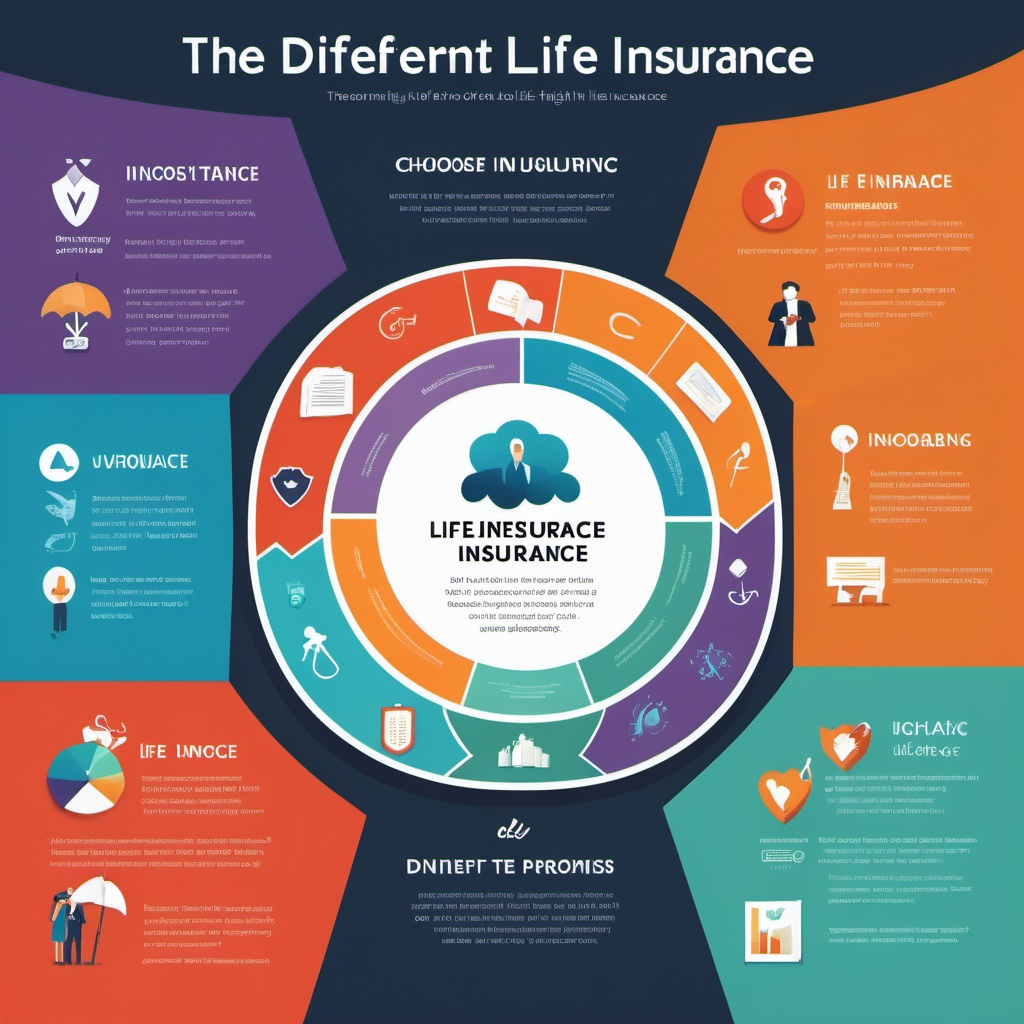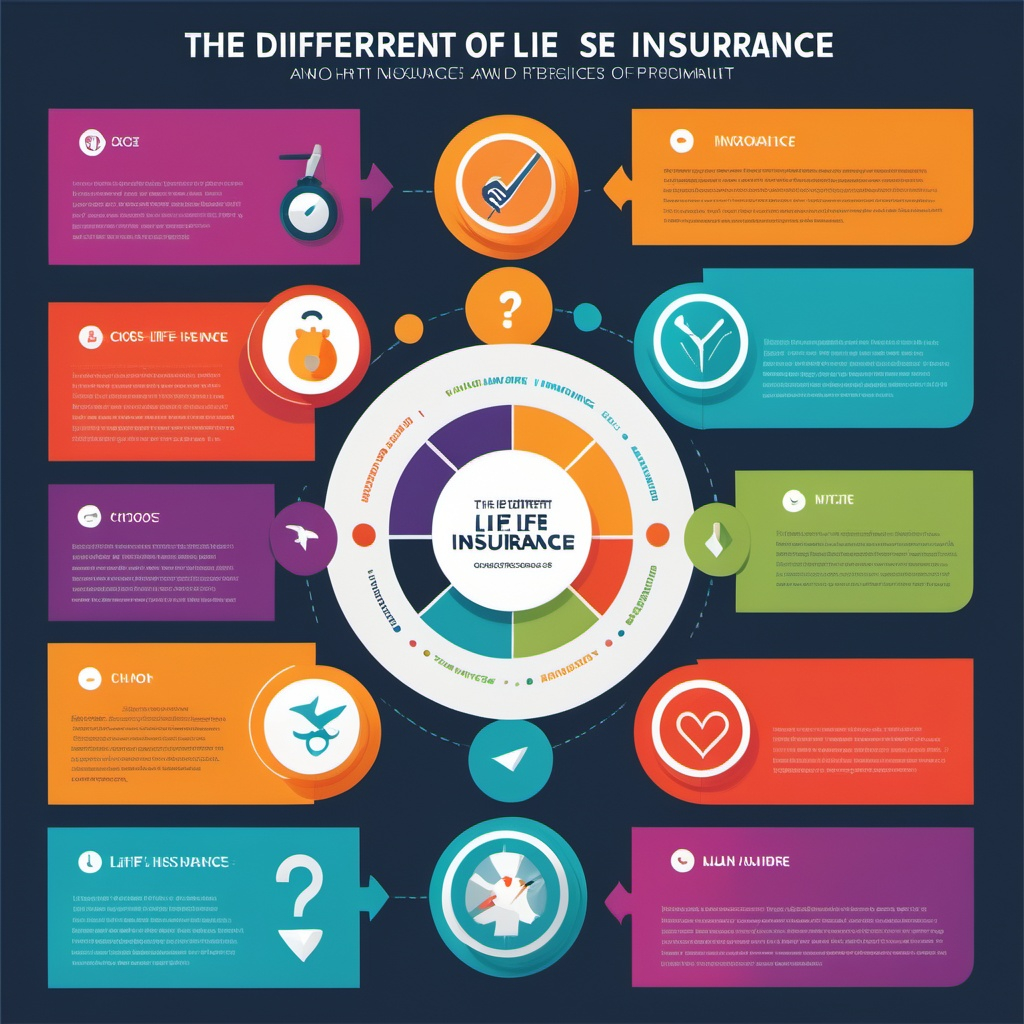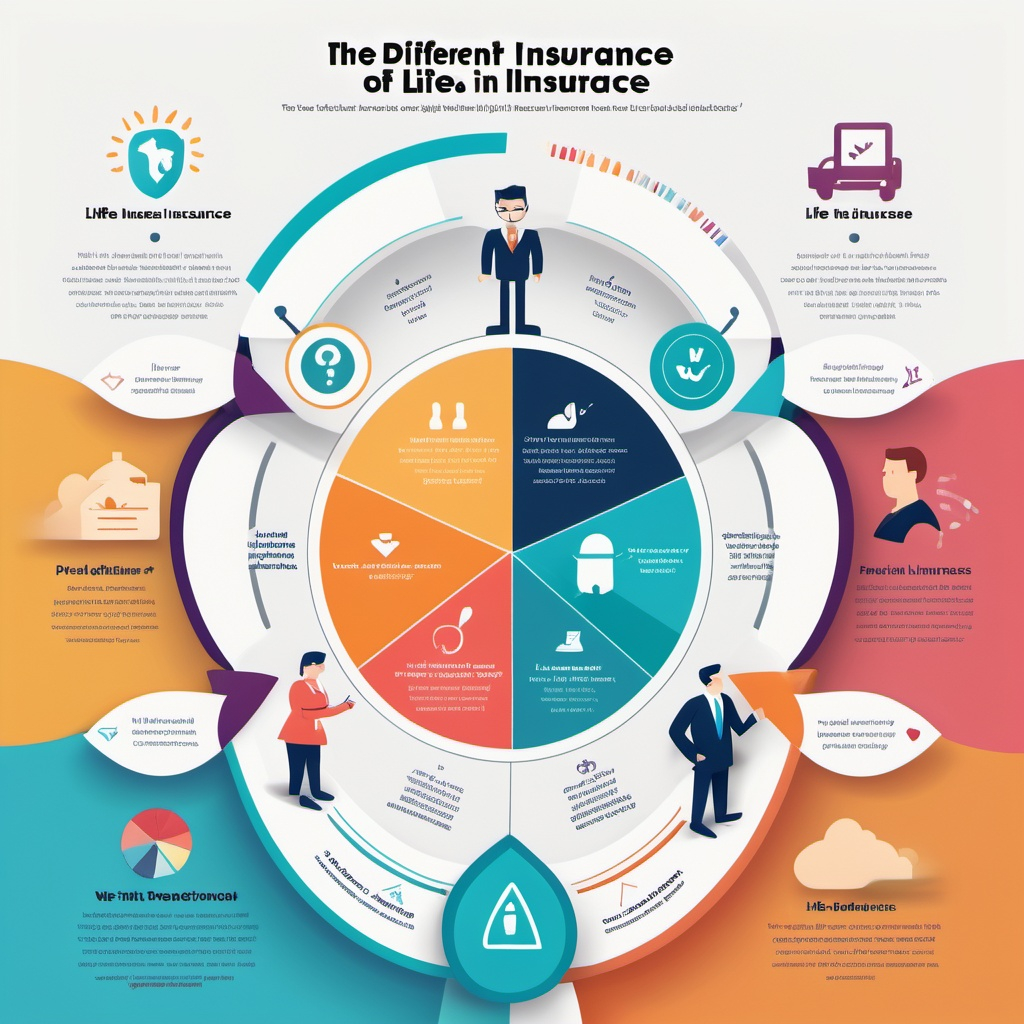Introduction
Life insurance is an essential tool in financial planning, offering protection and peace of mind to your loved ones in the event of your death. However, with so many types of life insurance available, it can be challenging to decide which one is right for you. Each type of life insurance has its features, benefits, and considerations, and choosing the right one depends on your personal circumstances, financial goals, and needs.
This article will explore the various types of life insurance, their key differences, and offer guidance on how to choose the right life insurance policy for your situation.
1. Term Life Insurance
What is Term Life Insurance?
Term life insurance is one of the most straightforward and affordable types of life insurance. It provides coverage for a specific term or period—usually 10, 20, or 30 years. If the policyholder dies within the coverage period, the beneficiaries receive a death benefit (the lump sum amount specified in the policy). If the policyholder survives the term, the coverage ends, and no death benefit is paid.
Advantages of Term Life Insurance:
- Affordable premiums: Since term life insurance doesn’t include a cash value component, it tends to have lower premiums compared to other types of life insurance.
- Simple and straightforward: The policy is easy to understand, with no investment or savings component, making it a great option for people who need basic coverage.
- Flexible coverage amounts: You can choose the amount of coverage that fits your financial needs, such as replacing lost income, covering debts, or paying for funeral expenses.
Disadvantages of Term Life Insurance:
- Temporary coverage: Once the term ends, the policy expires, and you are no longer covered unless you renew it or convert it to a different policy.
- No cash value: Unlike permanent life insurance policies, term life insurance doesn’t accumulate a cash value that you can borrow against or use in the future.
Who is it best for? Term life insurance is ideal for individuals who need affordable coverage for a set period—such as young parents, homeowners with mortgages, or individuals with significant debt. It’s also a good option for those who need to protect their family’s financial well-being during their working years.

2. Whole Life Insurance
What is Whole Life Insurance?
Whole life insurance is a type of permanent life insurance that provides lifelong coverage. Unlike term life insurance, it doesn’t expire as long as you continue to pay your premiums. In addition to the death benefit, whole life insurance also includes a cash value component that grows over time. You can borrow against this cash value or withdraw it, though doing so will reduce the death benefit.
Advantages of Whole Life Insurance:
- Lifetime coverage: As long as you keep up with the premiums, your whole life insurance policy remains active throughout your lifetime.
- Cash value accumulation: Whole life insurance policies accumulate a cash value, which grows on a tax-deferred basis. Over time, this can become a valuable asset that you can borrow from or use in retirement.
- Predictable premiums: Premiums remain fixed throughout the life of the policy, making it easier to budget for long-term financial planning.
Disadvantages of Whole Life Insurance:
- Higher premiums: Whole life insurance tends to have higher premiums than term life insurance due to the lifelong coverage and cash value component.
- Complexity: Whole life insurance policies can be more complicated to understand, especially when it comes to the cash value component and policy options.
Who is it best for? Whole life insurance is best suited for individuals who want lifelong coverage and are interested in building cash value over time. It can be a good option for people who have long-term financial obligations or those looking for an estate planning tool.
3. Universal Life Insurance
What is Universal Life Insurance?
Universal life insurance is a type of permanent life insurance that offers more flexibility than whole life insurance. Like whole life insurance, universal life insurance provides lifetime coverage and builds cash value over time. However, it also allows policyholders to adjust their premiums and death benefits. The cash value of a universal life insurance policy grows based on interest rates, and the policyholder can choose how much to contribute toward premiums.
Advantages of Universal Life Insurance:
- Flexible premiums: Unlike whole life insurance, universal life insurance allows you to adjust your premium payments based on your financial situation. You can increase or decrease your premiums or skip payments (as long as the cash value is sufficient to cover the policy’s cost).
- Adjustable death benefit: Universal life insurance allows you to increase or decrease your death benefit as your needs change.
- Cash value growth: The policy’s cash value grows based on interest rates, which can fluctuate over time. This gives you more flexibility than the fixed cash value growth of whole life insurance.
Disadvantages of Universal Life Insurance:
- Interest rate risk: The growth of the cash value is tied to interest rates, which can fluctuate and may result in lower returns during periods of low interest rates.
- Complexity: Universal life insurance policies can be complex, requiring regular monitoring to ensure that premiums are paid and the cash value is sufficient to keep the policy active.
Who is it best for? Universal life insurance is suitable for individuals who want permanent coverage with flexibility in premiums and death benefits. It’s also a good choice for those who are comfortable managing their policy and adjusting it over time.

4. Variable Life Insurance
What is Variable Life Insurance?
Variable life insurance is a type of permanent life insurance that combines life coverage with investment options. The cash value component of a variable life insurance policy is invested in a range of options, such as stocks, bonds, or mutual funds, and the growth of the cash value is based on the performance of those investments. Like universal life insurance, variable life insurance allows policyholders to adjust premiums and death benefits.
Advantages of Variable Life Insurance:
- Investment growth potential: The ability to invest in various asset classes gives policyholders the opportunity to grow their cash value at a potentially higher rate than whole or universal life insurance.
- Flexibility: Policyholders can adjust premiums and death benefits to suit their changing needs.
Disadvantages of Variable Life Insurance:
- Investment risk: The performance of the cash value depends on market conditions. Poor investment performance can lead to lower returns or even a decrease in the cash value.
- Complexity and higher costs: Variable life insurance policies are complex and come with higher fees, especially due to the investment options. This can make it more difficult to manage.
Who is it best for? Variable life insurance is best for individuals who are comfortable with investment risks and want to take a more hands-on approach to growing the cash value of their policy. It’s suited for those who are looking for permanent coverage with a higher potential for returns.
How to Choose the Right Type of Life Insurance
Choosing the right life insurance policy depends on several factors, including your financial goals, risk tolerance, and personal situation. Here are some considerations to help you choose:
- Your Coverage Needs: Consider the financial obligations you want to cover, such as replacing lost income, paying off debt, or providing for your children’s education. Term life insurance is ideal for temporary needs, while permanent policies like whole, universal, or variable life insurance are better for lifelong coverage.
- Your Budget: Term life insurance is the most affordable option, while whole and universal life policies can be more expensive. Make sure the premium fits within your budget over the long term.
- Your Risk Tolerance: If you prefer a predictable premium and guaranteed death benefit, whole life insurance may be a good fit. If you’re willing to take on some risk for potential higher returns, a variable life policy might be better.
- Flexibility: If you need flexibility in adjusting premiums or death benefits, universal or variable life insurance may be appropriate.

Conclusion
There’s no one-size-fits-all solution when it comes to life insurance. The right type of life insurance depends on your financial goals, family needs, and budget. Term life insurance is an excellent choice for those seeking affordable, temporary coverage, while permanent policies like whole life, universal life, and variable life insurance offer lifelong protection with additional cash value components.
By carefully evaluating your needs and understanding the differences between these policies, you can make an informed decision and ensure that your loved ones are financially secure no matter what the future holds.